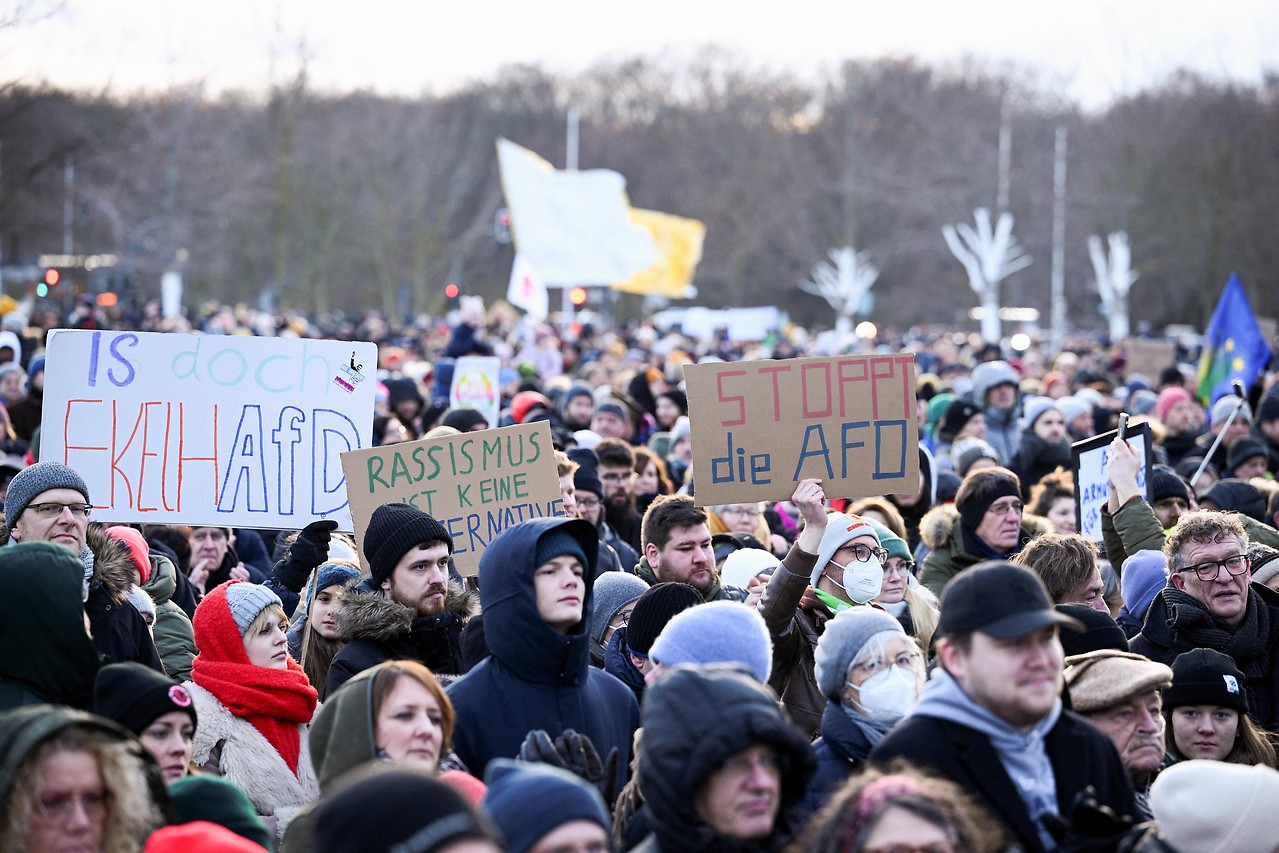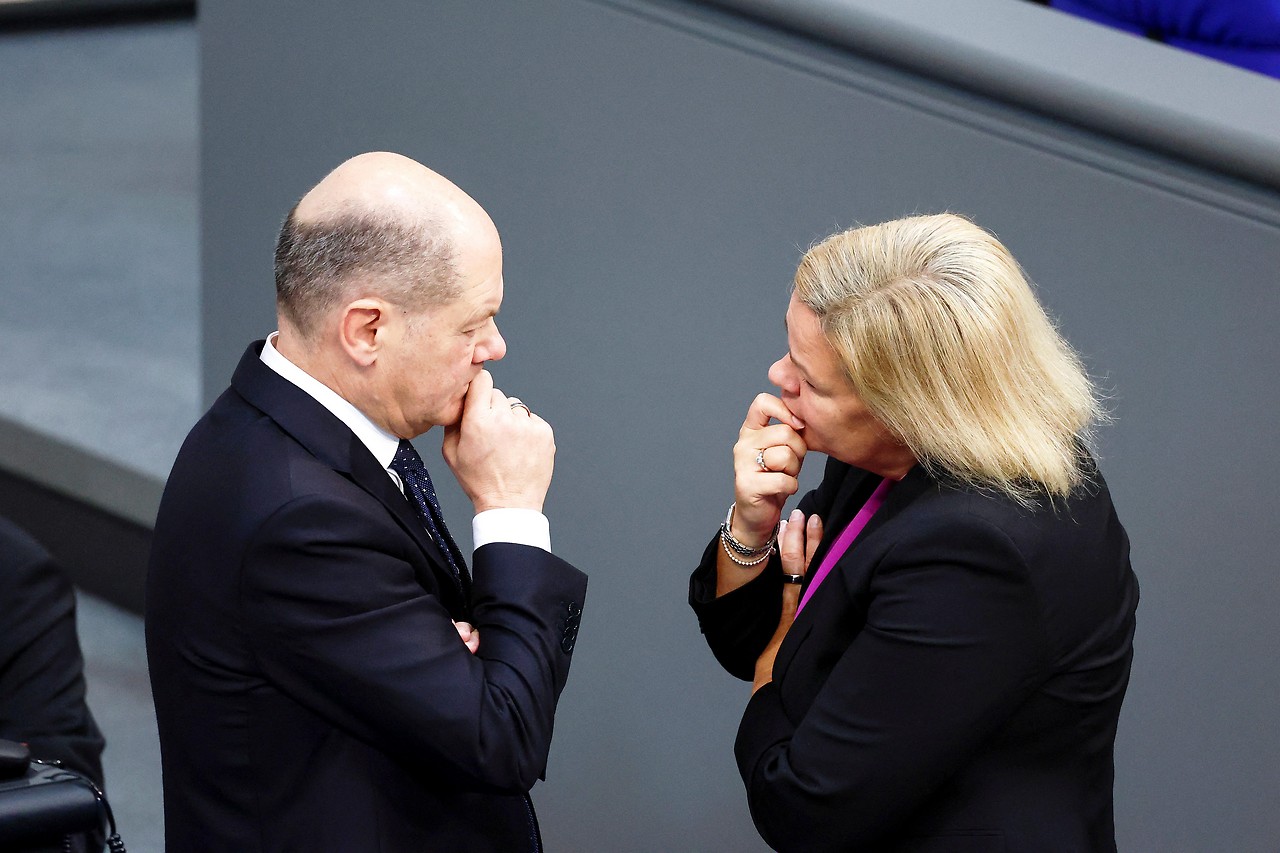The proceedings were a first for Germany's highest court. The possibility to exclude unconstitutional parties from public funding was introduced in 2017 after the ban on the NPD failed for the second time. In 2019, the Bundestag, Bundesrat and federal government submitted a corresponding application in Karlsruhe.
The Basic Law states: “Parties which, by virtue of their goals or the behavior of their supporters, aim to disrupt or eliminate the free democratic basic order or endanger the existence of the Federal Republic of Germany”.
Pfeifer (ORF) funds NPD
ORF reporter Andreas Pfeifer talks about the cancellation of state funding to the right-wing extremist NPD.
Renaming doesn't bring any change
The German Constitutional Court will have to decide on this. It now defines the requirements in more detail. It explained that the word “intended to” requires “appropriate and deliberate action”. As for the Die Heimat party, its organizational structure, regular participation in elections and other activities, and national and international networking demonstrate that it is aimed at dismantling the free-democratic basic order.
Unlike a party ban, it is not necessary that the party concerned can achieve its unconstitutional goals. Die Heimat met the requirements for exclusion from state party funding, as court vice-president Doris Koenig explained. The party is still anti-constitutional. As a result of the rebranding, the company has not repositioned itself in terms of content.
Possible outcomes with higher barriers
The extent to which the Supreme Court's ruling will affect the AfD is now up for debate. They are far more important than NPD once was. It will also involve significantly more money. The NPD last received state subsidies in 2020, about 370,600 euros, while the AfD, for example, received nearly ten and a half million euros in 2022. In recent years, Die Heimat has not received public funding due to a lack of electoral success.
Some politicians and constitutional experts argue that instead of banning the AfD, they should seek to exclude it from state funding. But that does not mean that public funding can simply be cut off. In fact, it may not be easier than banning the party altogether. The conditions for exclusion from party funding are “no less than the conditions for a ban,” former constitutional judge Gertrude Lüb-Wulf told the Funke media group's newspapers.
For the Constitutional Court to even consider reducing public funding for the AfD, the Bundestag, Bundesrat or the federal government must submit an application to do so. The process can take years.

Scholes: Do not give too much space to the enemies of liberty
Immediately after the verdict was announced, German Interior Minister Nancy Fesser (SPD) announced, referring to the AfD, without naming it, and referring to mass rallies held against the party over the weekend: “One more thing at a time when this decision is coming out: right-wing extremism is the biggest terrorist threat to our democracy.
Pfizer said that right-wing extremist networks want to expel people en masse from Germany because of their ethnic origin “an attack on the foundations of our society”. He was referring to reports of a meeting of right-wing extremists – including some AfD politicians – in Potsdam in November, where plans for mass deportations and deportations of people of foreign origin were reportedly discussed.
Chancellor Olaf Scholes (SPD) also welcomed the Karlsruhe ruling and announced that it would study the possible consequences in other cases. Scholes said the court's ruling “cannot give more room to the enemies of freedom”. We will now take a closer look at “what this says in other contexts that may interest us.”

“Blueprint” or “irrevocable” judgment?
Other powers in the “traffic light coalition” expressed themselves more cautiously. FDP leader Christian Lindner urged caution when asked if the AfD's party funding should also be cut. “One should not get the impression that the parties of the Democratic Center want to prevent undesirable competition by resorting to party law,” Lindner said.
Britta Hellmann, head of the Green Parliamentary Group, initially saw no consequences for the AfD in the Karlsruhe ruling. Your team will “look very, very carefully at what conclusions can be drawn from this,” Hasselman said. “But the first verdict is not easily reversed.”
CSU boss Markus Söder assesses the decision differently; On X (Twitter) he wrote about a “map for the AfD”. In the ongoing debate about a possible AfD ban, Söder had already brought up the option of a financial exclusion procedure. From the perspective of the former NPD, the decision “removed unnecessary competition from this fund”. An example was given against the “Party Loyal to the People”. “If it has now hit Die Heimat, the focus is now on the AfD, as expected.”